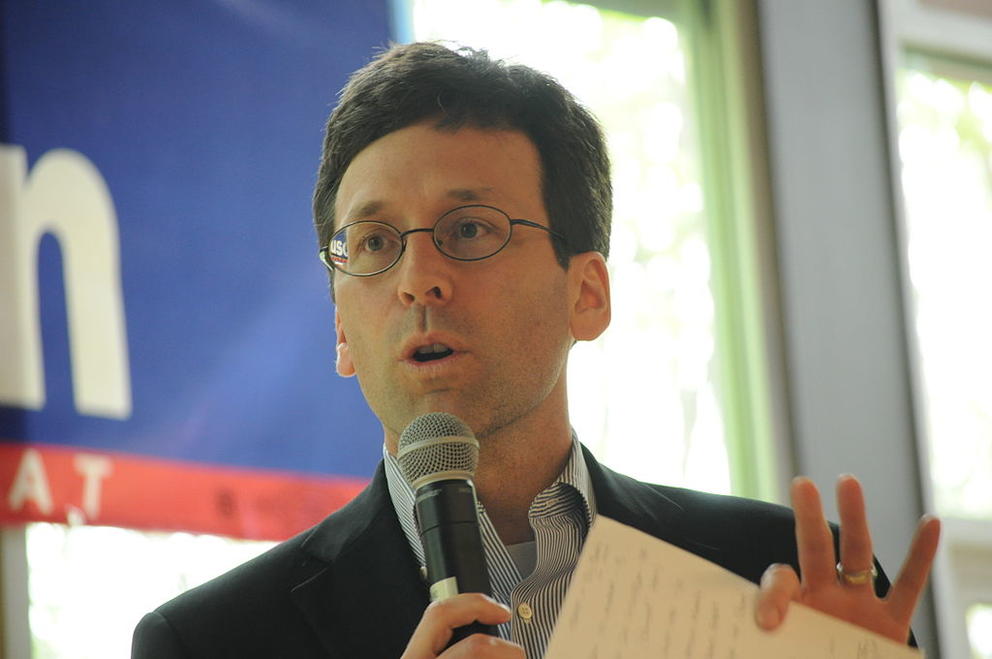When Judge James Robart announced this afternoon that he would be ruling from the bench, the crowd gathered in his Seattle courtroom held its collective breath.
Robart was saying, in effect, that he would be delivering an immediate decision on whether to block President Donald Trump’s executive order banning travel from seven majority-Muslim nations, and establishing refugee priority for Christians.
While court proceedings can drag on for weeks and months, even in expedited cases, with Robart’s announcement, fans and foes of the ban, who packed not only Robart’s courtroom but two overflow rooms at the U.S. District Court in downtown Seattle, knew they would be receiving an answer before they left the room.
The answer was yes. After hearing arguments from the federal Department of Justice, as well as state Attorney General Bob Ferguson’s office, Robart announced he was issuing a temporary restraining order, effective immediately, blocking the major parts of the ban at every port of entry in the United States.
After a brief celebration, Ferguson explained the impact of the ruling to reporters assembled outside the courtroom: “The judge’s order means the President’s executive order does not apply,” he said. Asked if he thought federal border agents would abide by the ruling, Ferguson said he would be keeping in touch with his counterparts around the country to monitor the ruling.
“We are a nation of laws,” Ferguson said. “It is my expectation that the federal government will honor this ruling.”
While the ruling wasn’t the first to target the travel ban — four other judges issued orders in the last week singling out individual parts of the Trump executive order — Robart’s was the most sweeping so far, targeting and effectively neutralizing all of the order’s main tenets, including its prohibition of entry from seven Muslim-majority nations. The judge also specifically blocked any preference for religious minorities in those countries, which have been widely interpreted as singling out Christian refugees for preferential treatment.
Maine’s attorney general also joined Washington in the suit, which argued that the state was being harmed by the Trump order by losing visitors, and also by negative impacts to the state’s universities; Department of Justice attorneys argued that the state wasn’t directly harmed, and that the court didn’t have the authority to overrule the order.
Robart’s announcement of his ruling wasn’t the first time the room held its breath. Earlier in the dramatic, fast-moving hearing, the judge seemed to push hard on the lawyer arguing the state’s case, Noah Purcell, Washington solicitor general and second-in-command at the state Attorney General’s office.
“It seems to me that it’s a bit of a reach to say that the president is anti-Islam, based on something he said in June in New Hampshire,” Robart said, pushing back against the state’s argument that Trump’s executive order unfairly targeted Muslims.
That collective holding of the breath, though, seemed to find it’s own outlet later on: When the attorney for the federal Department of Justice, who was arguing the case on behalf of the Trump administration, came to the stand, Robart pressed just as hard against her arguments.
When DOJ attorney Michelle Bennett couldn't name any terrorist act committed in the U.S. by a citizen of the seven Muslim nations listed in the ban, Robart pointed out she was an attorney from the Justice Department, which would handle such an issue, and so should know. Faltering, Bennett said she worked for the department’s civil division, not its criminal division, eliciting a chuckle from the from the room.
Along with arguments that the state didn’t have the legal standing to bring the case to court since it wasn’t directly harmed by the action, Bennett lobbied Robart to set aside the case on the basis of national security, saying that the decision to ban visitors and refugees to the U.S. was the president’s alone.
Purcell, the state solicitor general, replied that that idea was “frightening.”
“They’re basically saying that you can’t review anything the president says or does. That simply can’t be the law,” Purcell said to the judge.
The case will still have to be heard before a permanent ruling can be issued — Robart’s ruling just blocks enforcement of the ban until that happens. And the DOJ could appeal to overturn the restraining order.
But In his remarks following the hearing, Ferguson pointed repeatedly to the preliminary ruling as a good sign for the state’s chances in the trial. Under the law, Ferguson explained, Judges are only allowed to issue temporary restraining orders if they believe the plaintiffs have a good chance of succeeding when the case actually goes to trial in the coming weeks.
“That was part of the standard that we had to meet,” Ferguson said. “And we obviously did meet it.”



